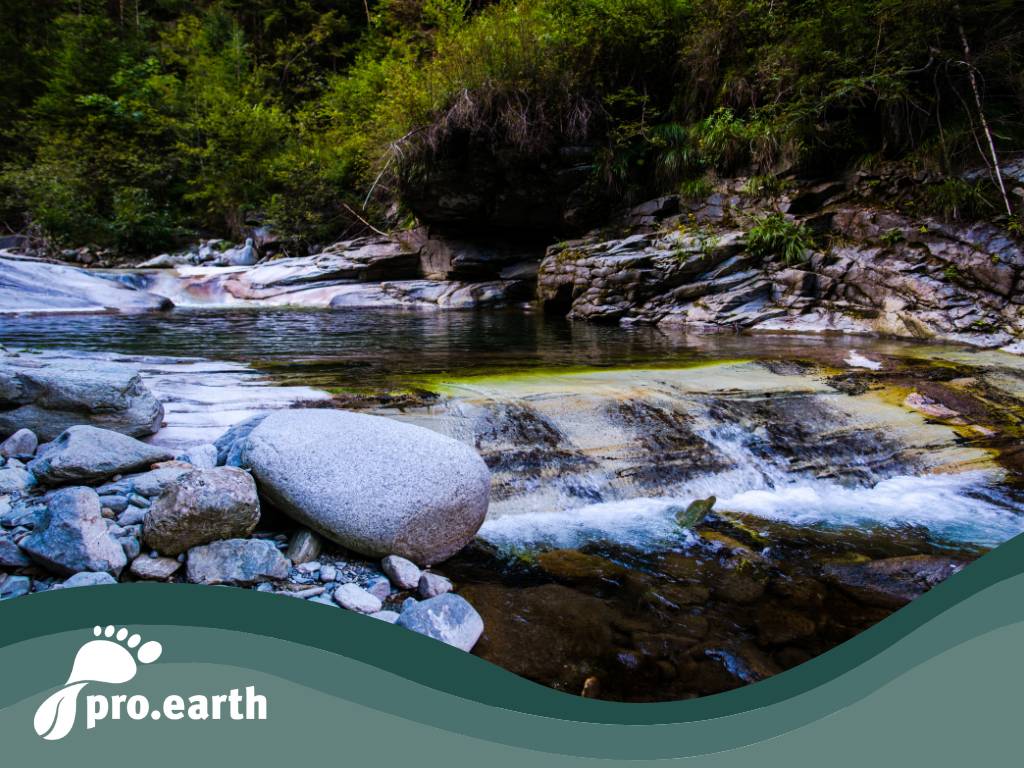The largest river and wetland restoration initiative in the world - The Freshwater Challenge

Last week at the UN Water Conference in New York, a coalition of governments launched the Freshwater Challenge - the largest ever initiative to restore degraded rivers, lakes and wetlands that are central to tackling the world's worsening water, climate and nature crises.
The aim of the initiative is to restore 300,000 km of rivers - equivalent to more than seven times around the world - and 350 million hectares of wetlands - an area larger than India - by 2030. The Challenge was launched by Colombia, the Democratic Republic of Congo, Ecuador, Gabon, Mexico and Zambia and supported by WWF, IUCN, Wetlands International, TNC, et al.
In addition to water supply, healthy freshwater ecosystems provide a wealth of benefits for people and nature and are crucial for mitigating and adapting to climate change and achieving the Sustainable Development Goals (SDGs).

The background to the initiative
In the last 50 years, a third of the world's wetlands have been lost, and we are still losing them faster than forests. Rivers and lakes are the most degraded ecosystems in the world and fish populations, many of which are vital for food security, are on the brink of extinction.
Climate change and ecosystems
The IPCC's Sixth Assessment Report, published last week, describes the severe impacts of climate change on freshwater ecosystems and emphasizes the need to protect and restore them in order to improve adaptive capacity and build resilient societies, economies and ecosystems.
https://news.pro.earth/2023/03/21/ueberlebensleitfaden-fuer-die-menschheit/
Dr. Chris Baker, Program Manager for Water Resources at Wetlands International: "Wetland loss and degradation is a major cause of the interlinked water, climate and biodiversity crises. The good news is that solutions already exist to make us more resilient to water pollution - improving water retention in landscapes by restoring the hydrology of our degraded wetlands. What we need now is action."
James Dalton, head of the water and land management team at the IUCN: "Extreme weather events have increased five-fold in the last 50 years. Driven by climate change, the hazards that have led to the greatest human losses have been water-related - droughts, storms and floods. Our planet needs to be resilient and robust to withstand these disasters, and healthy freshwater ecosystems are key to this."
The challenge comes from the following countries
The Freshwater Challenge, supported by the governments of Colombia, the Democratic Republic of Congo, Ecuador, Gabon, Mexico and Zambia, calls on all governments to commit to clear targets for the urgent restoration of healthy freshwater ecosystems in their updated National Biodiversity Strategies and Action Plans, their Nationally Determined Contributions and their National Implementation Plans for the SDGs.
Susana Muhamad, Minister of Environment and Sustainable Development, Colombia: "This initiative is in line with the priorities of the National Development Plan 2022-2026, which will allow the country to strengthen territorial planning around water by protecting all water systems from the perspective of water as a common resource and fundamental right. This also includes the participation of communities in the resolution of socio-environmental conflicts, respect for cultural diversity and ensuring the conservation of biodiversity".
The Freshwater Challenge is a country-led initiative with an inclusive, collaborative approach to implementation, where governments and their partners will work together with indigenous peoples, local communities and other stakeholders to find solutions to freshwater challenges.
In accordance with the Montreal Convention
Building on the Global Biodiversity Framework agreed in Montreal in December 2022, which aims to restore 30% of the world's degraded inland waters, the Challenge will contribute to the UN Decade on Ecosystem Restoration.
https://news.pro.earth/2022/12/19/es-ist-vollbracht-das-neue-artenschutzabkommen/
Stuart Orr, Freshwater Lead at WWF International, said: "The clearest sign of the damage we have done - and continue to do - to our rivers, lakes and wetlands is the staggering 83% decline in freshwater species populations since 1970. The Freshwater Challenge sets the right targets and framework to reverse this trend - to the benefit not only of nature, but also of people around the world. Governments and partners must urgently commit to this as part of the water action agenda that emerges from this UN conference."
According to WWF Germany, "more than 90 percent of German surface waters are not in good ecological condition. Germany must also live up to its global responsibility and support the global community in achieving the Freshwater Challenge." The situation is similar in Austria. "In Austria, only 14% of water bodies are still intact, i.e. in very good ecological status. The reason: Austria's rivers are obstructed, dammed and concreted over," writes WWF Austria.
Our pro.earth.conclusion: The Freshwater Challenge should also be implemented by Germany and Austria and the restoration of destroyed freshwater ecosystems should be intensively promoted. We have already written about Austria's peatland strategy. There is still a lot to do here!
https://news.pro.earth/2023/01/15/moore-speichern-kohlenstoff-klingt-sensationell/






